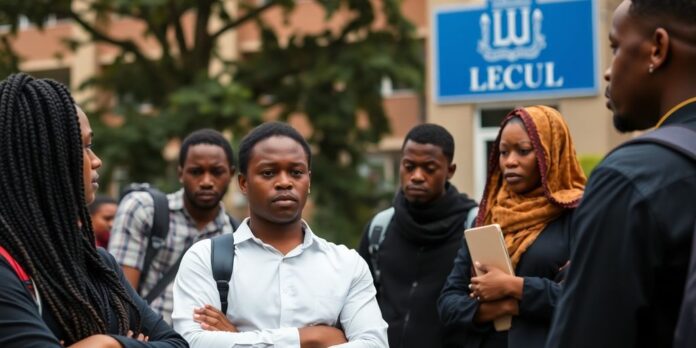In a significant move, Lagos State University (LASU) has initiated an internal investigation following serious allegations of maltreatment against students by Professor O.T.F. Abanikannda, the Dean of the School of Agriculture. The inquiry was prompted by a formal petition from the Take-It-Back Movement, which accused the professor of subjecting students to degrading conditions during their project assignments.
Key Takeaways
- LASU has confirmed an official probe into allegations against Professor Abanikannda.
- Students reported being forced to live in poor conditions on the university farm.
- The Take-It-Back Movement has called for accountability and immediate intervention.
Background of the Allegations
The controversy erupted when final-year students from the Faculty of Agriculture reported that they were compelled to live and work under harsh conditions on the university’s farm. According to the students, they were made to sleep in makeshift shelters for over a month as part of their project requirements. This situation was described by sources on campus as "prison-like," with students being denied access to their hostels and subjected to intense manual labor under threats of academic failure.
University’s Response
In a letter dated May 20, 2025, the university’s Registrar, Emmanuel A. Fanu, acknowledged the petition and confirmed that the Vice Chancellor had ordered an official investigation into the matter. The letter emphasized the university’s commitment to student welfare and the importance of maintaining a safe and respectful learning environment.
Fanu stated:
"The welfare of our students remains a core priority and is central to our academic and administrative values. In view of the issues highlighted in your letter, the University has instituted an internal investigation to ascertain the facts and ensure that due process is followed."
The Role of the Take-It-Back Movement
The Take-It-Back Movement, which advocates for student rights, played a crucial role in bringing these allegations to light. In their petition dated May 18, they demanded immediate action from the university and accountability for the alleged maltreatment. Following the university’s response, the movement expressed cautious optimism and pledged to cooperate fully with the investigation.
Adekunle Adeyemi Taofeek, the Lagos State Coordinator for the movement, stated:
"We appreciate the University’s prompt attention to the serious concerns raised. We sincerely hope this matter will be addressed with fairness, transparency, and urgency in the interest of justice and the welfare of the students involved."
Implications for Student Welfare
This investigation highlights the ongoing concerns regarding student welfare in Nigerian universities. The allegations against Professor Abanikannda have sparked outrage among students and activists, raising questions about the treatment of students in academic settings. The outcome of this investigation could set a precedent for how similar cases are handled in the future.
As the investigation unfolds, the university community and the public will be watching closely to see how LASU addresses these serious allegations and what measures will be implemented to ensure the safety and well-being of its students moving forward.


